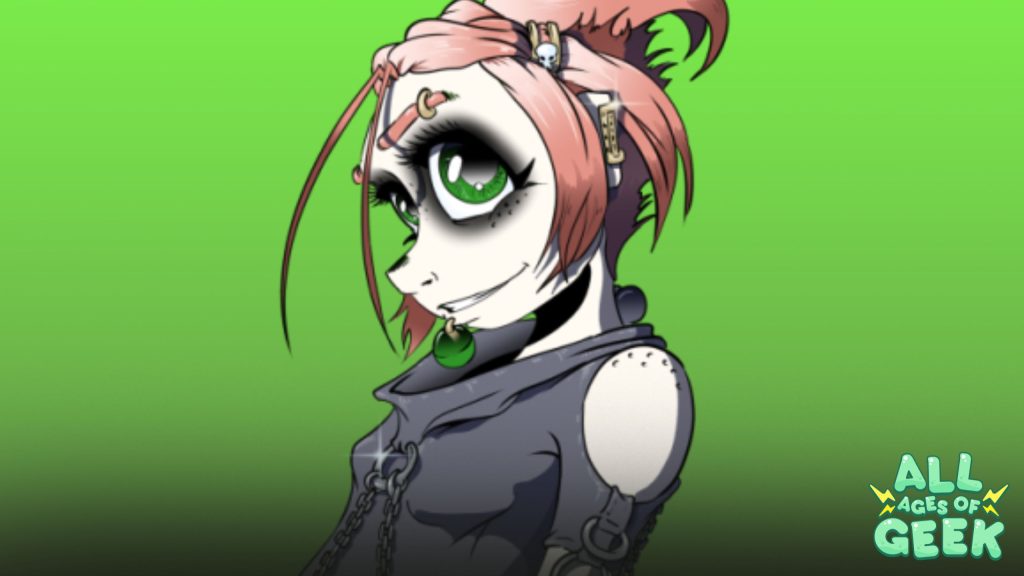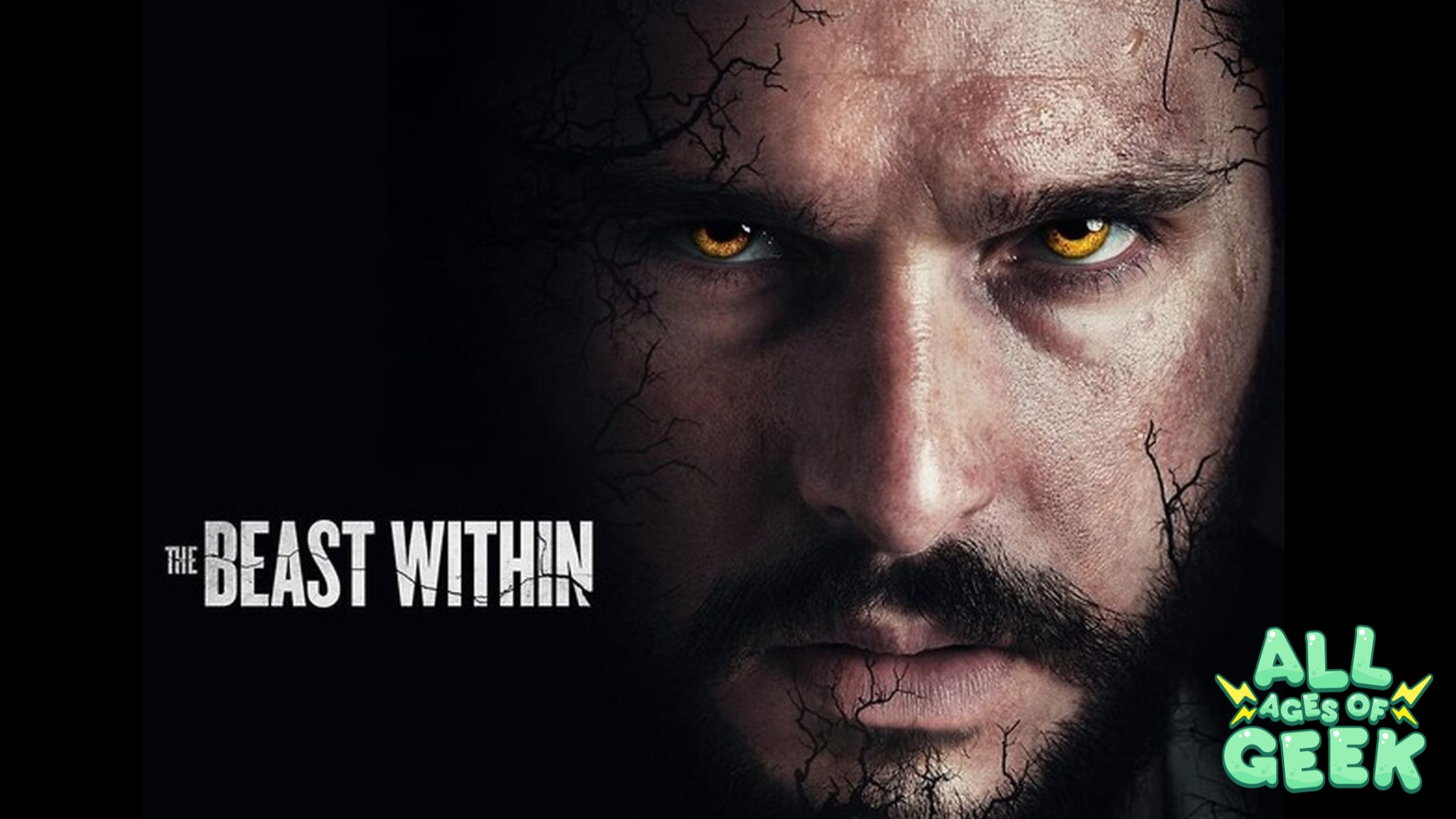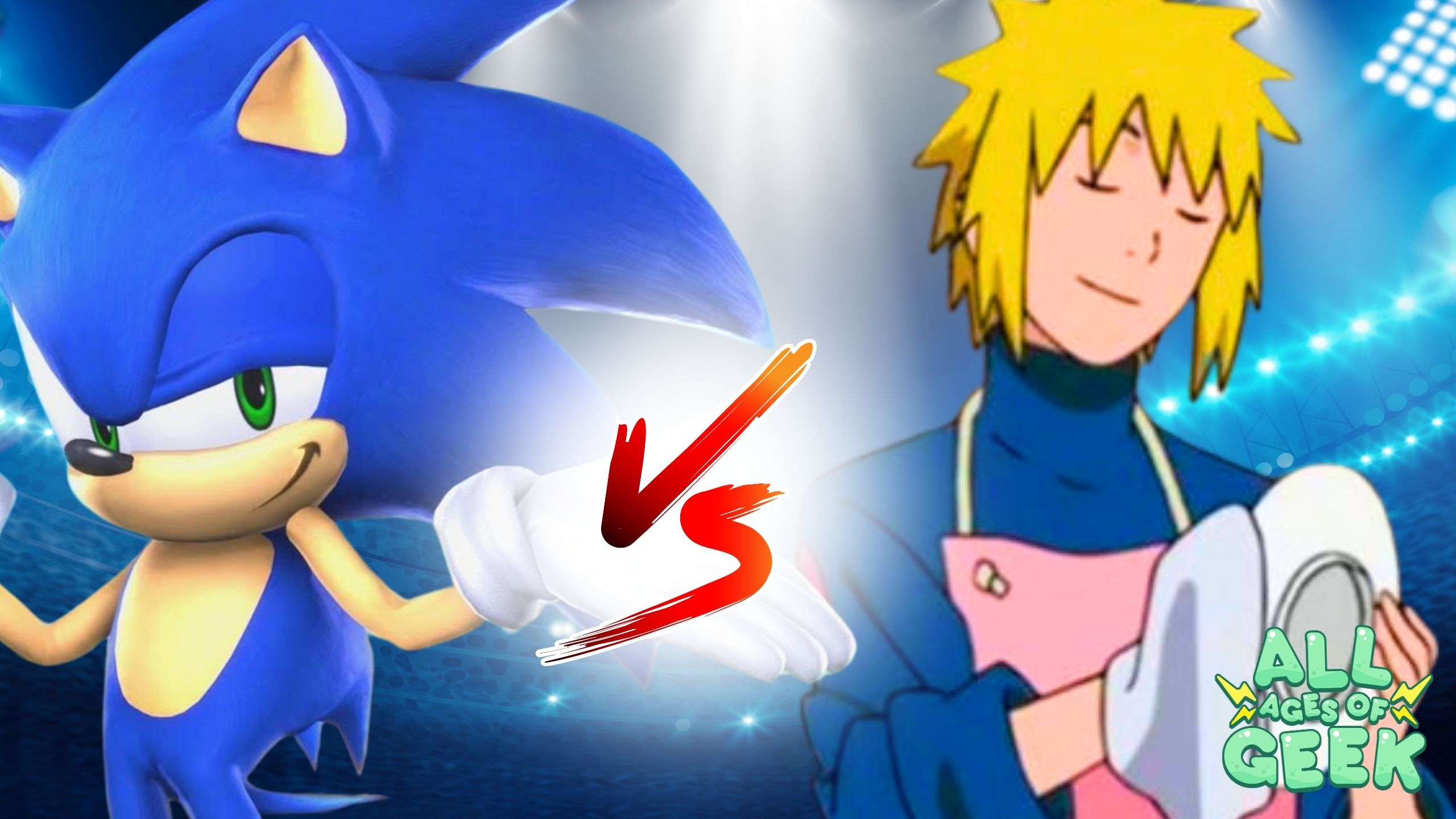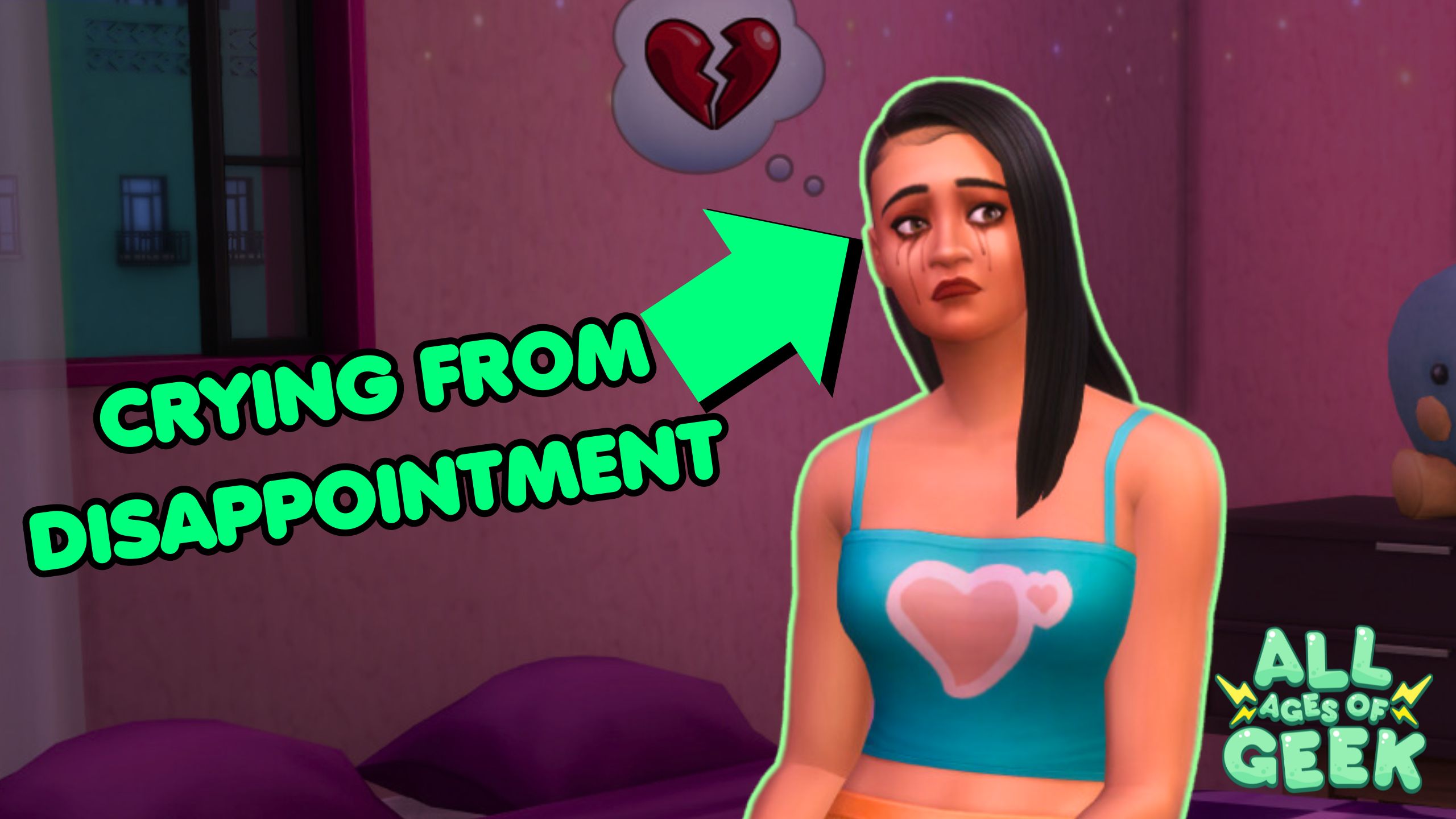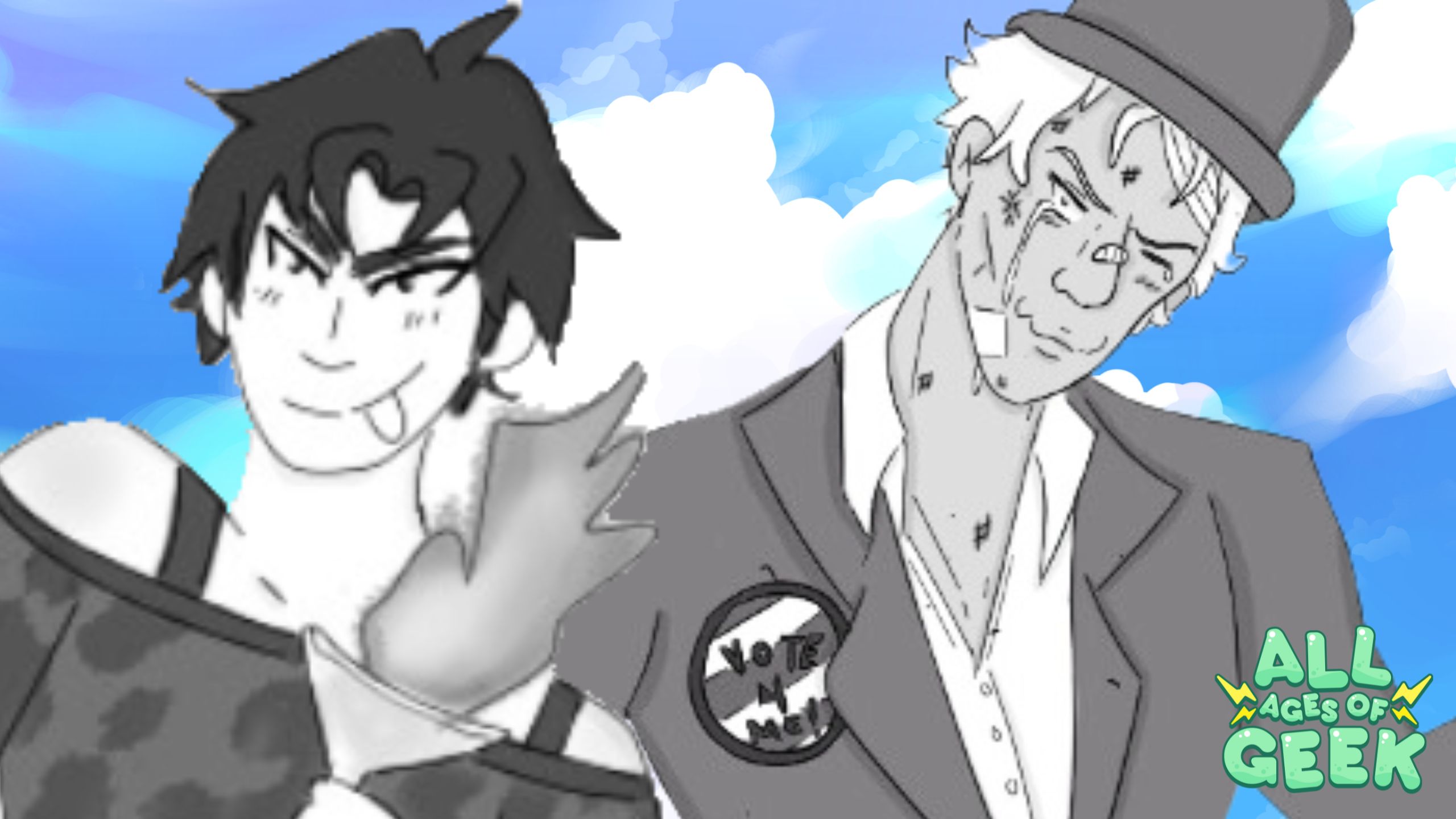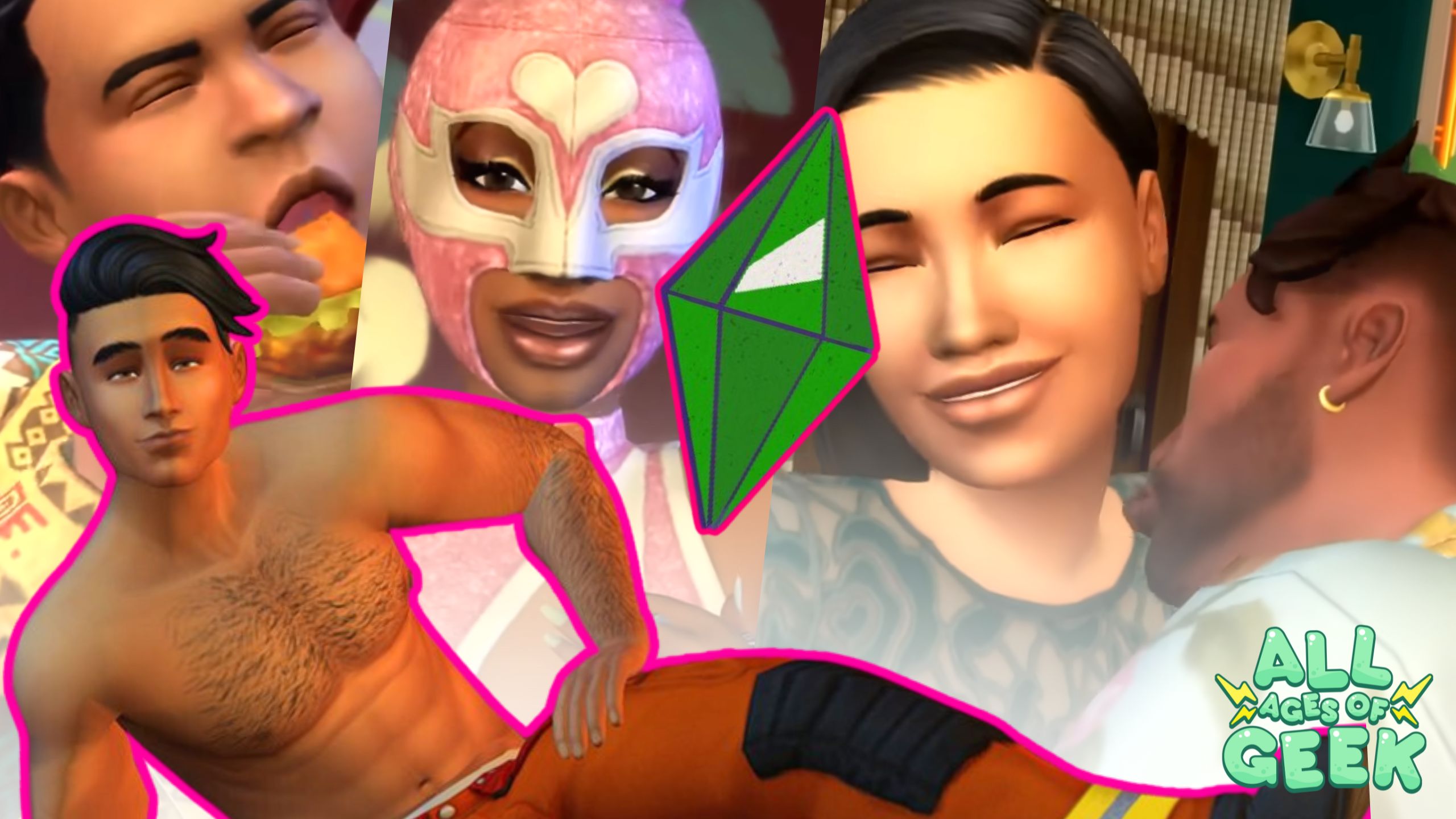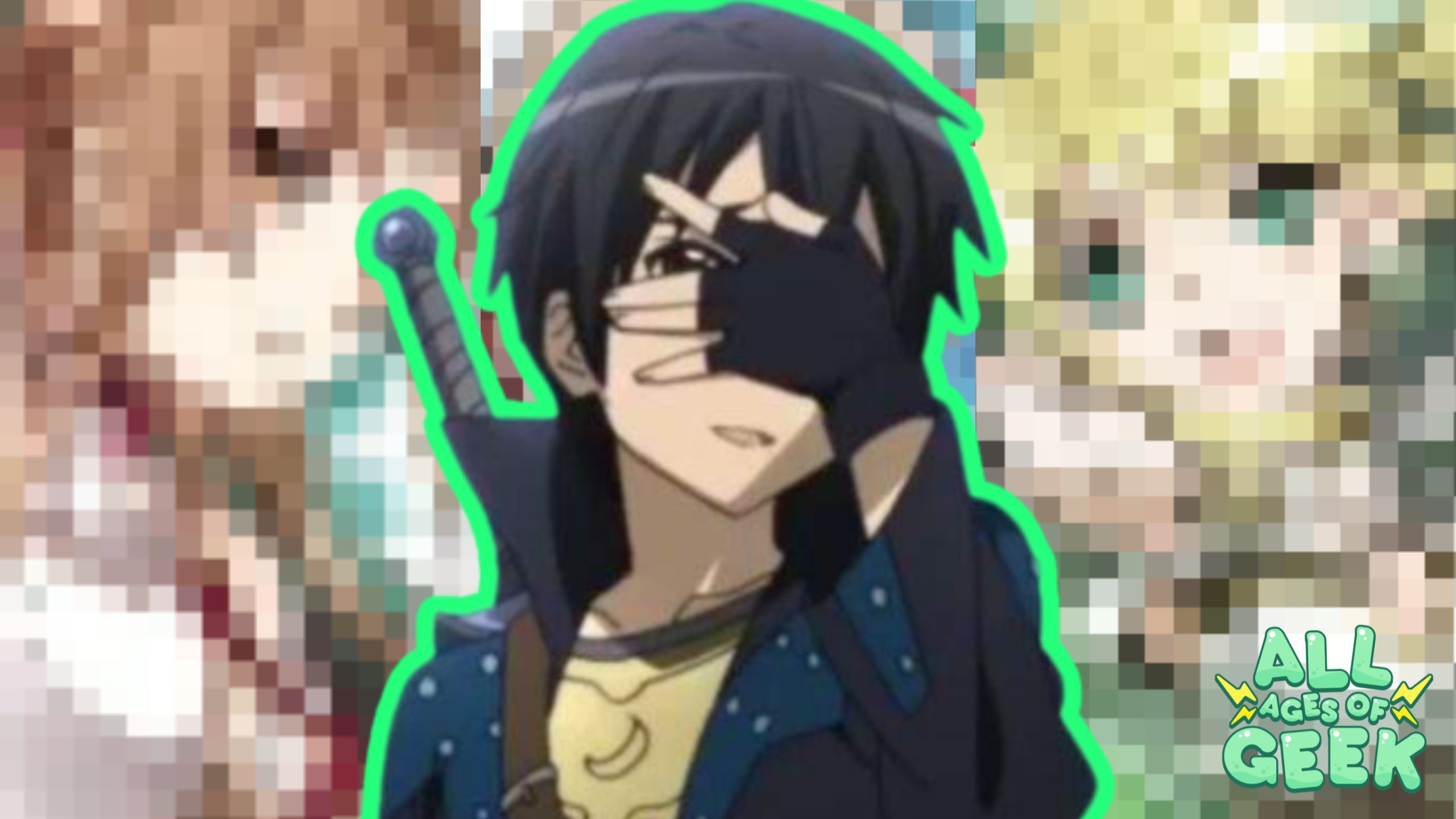Interview with BoomerZ creator of “Little Ball of Hate” – All Ages of Geek Tapas Reviews
Welcome everyone to more Tapas Reviews on All Ages of Geek! This time we dive into a romance and supernatural horror comic, “Little Ball of Hate.” Since the launch of “I Married a Monster on a Hill” on WEBTOON All Ages of Geek has started an initiative to support comic creators on Tapas, WEBTOON and Wattpad. So let’s chat more about “Little Ball of Hate”.
With a unique blend of genres, this thrilling series is bound to keep you on the edge of your seat. Please give a warm welcome to BoomerZ, the writer and artist of “Little Ball of Hate,” currently on its 2-book journey towards a 5-book run on both Tapas and WEBTOON. Let’s get to know BoomerZ and the creative process behind this fantastic series!
A note from BoomerZ Creator of “Little Ball of Hate”
An introduction to myself before we get into some of the questions. My creator name is BoomerZ and I write and draw Little Ball of Hate on Tapas ( https://tapas.io/series/Little-Ball-of-Hate/info ) and Webtoons ( https://www.webtoons.com/en/challenge/little-ball-of-hate/list?title_no=725540 ). It’s a weekly romance/supernatural horror comics that is 2 books into a 5 book run.
What initially sparked your passion for creating comics, and how did that desire evolve into the work you produce today?
I have always been an artist for as long as I could remember (basically like every artist out there). The comics part comes from wanting to tell stories. When I was young I would play tabletop role-playing games, always as the Game Master (GM) or Dungeon Master (DM), the one telling the story. Novels was never an option as I was never a good writer. I was never good at the structure of the written word. A novel writer is a skill set I never developed. But I could tell a story with pictures so that is where I went to. I not so secretly wanted to be an an animator from a very young age. I even have an animation degree and enjoy doing animation for fun. Looking at my style betrays this animation background. The large Disney eyes and over expression on pushing poses is what I love about animation. So I put that into my stories and artwork. It’s not quite the manga style as for the most part I like staying on model. But to do a modern animation film takes the time that prevents it from being a solo project. 3D animation held no interest to me so the closest thing I could do is tell stories through a comics.
Can you walk us through your journey as a comic creator, starting from the moment you first decided to explore this medium?
This happened way back in my days of reading comics in the early 90s. We had some manga, mostly published by Dark Horse, but I enjoyed some marvel stuff too. I would look at the comics as a way for one person to tell a story and not need all the other parts of a movie or TV series. One person could do everything. Publishing was a completely different animal though, and before the internet it was basically impossible to reach the audience you can today.
And what really changed the game was the tablet. Being able to draw what you want while actually seeing the canvas was game changing for me. Drawing on the pad while looking up at a screen was never a good fit for me coming from an art background. There was a simple disconnect. And scanning a drawing was always a problem as you have noise that could be captured that you had to clean up. Now with modern programs and a good tablet, you can really cut the process down to where one person can easily make a comic all by themselves.
The final thing that made we produce a comic on a webtoon style site was the smartphone. Everyone has one. So comics can be read anywhere. That made me think this was the way to enter the comic making field.
Your work touches on various themes and subjects. How do you choose which stories to tell, and what do you hope your readers take away from them?
I have only one story now but it has many themes. The subject is one that I always thought about with the “magical-girl” genre of comics. What would really happen if a normal person found themselves with a demon and be bound to it. I wanted a normal 20 something guy and how he would handle a real demon. Not a heart-of-gold, deep down a good person, but a demon that didn’t really care about humanity. She can’t be saved, she is what she is. I also wanted the comic to be grounded in the real world. Normal people go to work, eat lunch and have lives. They aren’t stereotypes of what people think they should be. No one is evil, or good. The supporting cast are also normal people, so should act and talk like normal people. The only out of ordinary is the demons and that world. But the average person doesn’t even know that exists. They can’t or the world would break down real quick. If a monster attacks New York in the real world and knocks half the building down, it would take decades to rebuild it. So to have a society that works, that can’t happen.

But in all this supernatural stuff (demons and magic) it really doesn’t matter as that is the setting, not the story. They story is a fish out of water for the normal guy being with a demon. The demon girl is powerful, but the story is not how she could beat people up. It’s about accepting a person for all their flaws and strengths. I like the idea of a Superman story about his relationship with Lois. Yes, he is Superman. But what does that actual mean? He can’t beat Lois to make her listen to him. So you get the human side. He still has to save the world, but to me that is the boring part. We know he can do that. He has to be a human with those around him.
In respect of what the audience gets out of it, purely to be entertained. I want to tell a story and people read it for enjoyment. The stories I choose to tell, the small arcs of a larger arc, are just little moments in time to move the story to its conclusion. I want the series to be episodic. Each episode building to a climax for the book, which is a total of 5 books. Book 5 will complete the series.
What led you to choose Tapas as the platform for sharing your comics, and what aspects of the site do you find most appealing for your work?
Tapas has some great features and was one of two sites that I picked. I like they have a discord that I draw live on regularly and a forum. Both these allow to communicate with the audience. I’m starting to really like the web scroll down of webcomics. It allows some interesting panels you could never do in paper comics. For the most part it gets the job done.
Tapas has its own unique features and community. Are there any aspects of the platform that you feel could be improved, or perhaps have been challenging to navigate?
I really couldn’t say what to improve. Maybe a larger section to promote non Korean style comics. Most of the featured comics fall into this category. The biggest problem is the vast number of comics that are being produced. It can be a needle in a haystack to find an audience of any real size.
One thing I think they really need to nail down is what is acceptable content. They should just go with a PG-13 like scale. I understand they don’t want sexual content on the App, but the community is always guessing at what is appropriate and what is not. My comic got pulled for showing a nude back of a person (you saw nothing and would be appropriate for any TV show on prime time), and I had to rearrange the word balloons to cover it. There just doesn’t seem to be a real guideline other than “Apple or Google won’t like it”. The community then just kind of guesses.
In your opinion, what distinguishes independent comics from mainstream comics, and why do you think the indie scene is important for the overall comic industry?
Independent comics for the most part are not as polished and can usually get away with some mistakes. There should be no reason for that in the mainstream industry. I think we also have to throw the team of creators on webcomic platforms that are basically professionals.
The indie scene also allows a lot of freedom the mainstream doesn’t allow. You can try new things and if you fail no one knows about it. If Marvel of DC makes a political commentary about anything they run the risk of being subject to massive backlash. And they have movies and merch on the line they can’t afford to lose. To many moving parts. The indie guy can make his story the way he wants. If it becomes popular, GREAT. But if it crashes and burns, no problem, make another. You don’t want to crash and burn Batman. Way more responsibility.
As a comic creator, what are some unique storytelling techniques you’ve developed to set your work apart from others in the genre?
Pace and Dialogue are the two I really work on. I want my pacing to reflect the story I’m telling, and I want it to be like a movie storyboard. I don’t want a slide show of pretty pictures and dialogue boxes telling me whats going on. Take the time to draw the reaction panel. The panel with no dialogue, just a quiet time in space to show the character is taking it in. Extra panels to show the person stepping out of the car to build tension. I am trying to tell a story and control how the reader interacts with it. He can feel any way he wants after reading it, but I want the set up and pay-off to be controlled.
The dialogue is a massive thing for me. I want it to sound like real dialogue, which has pauses and stops. A couple jokes where it’s appropriate, but serious where it need to be. I Dislike monologues in comics and books, as no one really talks like that. I also dislike the constant jokes is otherwise serious subject. If you are making a comedy, fine. But you need the serious parts to make the jokes hit. The dialogue should be in short spurts, and reactions to others talking to show the people are actually listening to one another. You can also hide small hints to things that are coming up in the story.
Finally, I want everyone to “sound” different. This means even without dialogue balloon arrows, you would know who said what. That is the hardest part of dialogue. Without using little tricks like accents to cheat, the audience should be able to figure out who said what. The worst is if everyone talks with the same voice. I reread my dialogue a couple times to try and get it right.
Apart from your comics, what other avenues do you explore to engage with your audience, such as social media, live events, or merchandise?
I do live draws on discord weekly and have a couple pages set up on Facebook and Instagram. I’m still pretty new to promoting myself so it’s a work in progress. Merchandise will come as I get an audience that would demand it. I’m not there as of yet. I have been in the webcomic thing under a year. It will take a while.
Creating comics can be both rewarding and challenging. Can you share some of the struggles you’ve faced along the way, and how you’ve overcome them?
Time is by far the biggest factor. I make a weekly comics. That breaks down to doing something every day on it. Whether writing next weeks script to drawing it. The big thing is treat it like it’s important to you. I truly enjoy about 90% of the process of making a comics. I do it because it’s something I want to do. But when it gets hard, you just push through. For the most part when it comes to self publishing a comic, it’s you vs the world. You just have to set down and get it done. And it’s more about what you don’t do, than what you do. Do you sit and watch your series on Netflix or do you draw. Do you go out with friends or do you draw. You have to balance it, but drawing should be your life. If it’s something you can only do when in the mood, you really have to sit down and think if this is what you want to do. A comic is not easy. It’s work.

I have the feeling sometimes looking at an empty page of “all the stuff I have to do.” But usually, after I just get up and start, it moves and you have fun. Next thing you know its a couple hours later and you have a lot done. Do that on a schedule and suddenly you have a finished project.
Are there any comic creators, artists, or writers who have been particularly influential or inspiring to you? How have they shaped your creative journey?
Where to even start. When I was super young Todd McFarlane was huge to me. His art was just so different than the norm. His stories… not so much. Masamune Shirow (Appleseed, Ghost in the Shell, Orion, etc) was an introduction to Manga back in the day. This was way before it was normal to just go to the store and find piles of manga to chose from. Kōsuke Fujishima (Oh, My Goddess) set my current story into motion as an idea. His story is so damn close to perfect that I still reread it to this day. He has emotion and comedy while still having the stakes in some of the story lines be very serious.
Finally there is Katsuhiro Otomo (Akira). While the anime is great, and holds up to anything produced today, I’m speaking of his manga. Akira is a masterclass in storytelling. His pacing and direction is perfect. The action scenes are fast paced, the scale can go from small in the beginning to world destroying by the end, and the characters are all different with unique goals. The story just builds on what came before it and then ends in a climax. And the ending is both satisfying and earned.
For aspiring comic creators, what are some practical tips and advice you would give to help them find their own voice and style?
First, get the right tools. Don’t make it hard on yourself by using something that doesn’t fit for the publishing. Comics are digital, get a tablet. They can be expensive, but put everything into perspective. Most tablets are less than a smartphone. And a used one is even cheaper. You don’t need a Cintiq to make comics, but the days of paper and pencil are gone.
Classes. Go to school. Not for a degree but for the chance to learn the right way to draw. Drawing is a process and a skill. There is no talent. Take as many life drawing classes you can. Draw what is real before you try to draw your comics. If you know the rules, you can break them. Your style will come from short cuts to problems, and those shortcuts are repeated until they just become natural to you. BOOM, you now have your style. You can copy other artist, but you are also copying their solutions. This is not a bad thing (and why try to reinvent the wheel of problems) but know going in that is what you are doing.
Finally, draw things you hate to draw. Hate backgrounds? Force yourself to draw them. Hate human faces? Draw them. Don’t use an animal heads to hide the fact you can’t draw human faces. Embrace the problems in your drawing arsenal. I spent more than one life drawing class (4 hours) just drawing their hands and feet. Focus on these things to get better. Use reference until you can wing it from knowledge you have through practice. Reference is not cheating.
Can you tell us about your creative process, from brainstorming ideas to the final execution of your comics? How do you stay motivated and consistent throughout?
I believe the best thing to get you daydreaming and looking for a story it to be bored. But being bored, sitting in a chair or on your bed is not what I mean. Find something that takes no brain power but has to be done, such as mowing the lawn. Now you can’t escape. You have to be there. So you daydream to pass the time. That is how I come up with my ideas. I mentally file that idea and write it down later. I have a fold of “things to happen” in my comics. These are things that are going to happen. I don’t know when or how at that time, but they will get worked in.
After I have the basic idea for the episode, pulled from things I have thought of, I start breaking down the page count. My comics is roughly 30ish panels a week. Can be a little more, can be a little less. A simple number outline in Word, and I start fitting in the beats I need to hit for the episode. This is also where I plan how to finish the episode. Is it a part of a mini arc that need to end on a cliffhanger or the end of a mini arc that needs a conclusion.
Now comes the most important part of the process. Get it on paper. Write dialogue, get the panels set up for the action. Just get in down. Too many people plan forever. But just getting it down on paper makes it real. It doesn’t have to be perfect at this time. You can refine it later. That is what keeps me going in the process, the momentum of the creation. You just keep pushing forward. As things are complete, it just makes you want to complete more. That carries me all the way to publishing the episode. That feeling of “it’s done” is like nothing else. And then to start it all over again the next week.
How do you balance the creative and business aspects of being an independent comic creator, such as promoting your work and managing finances?
This has been a major problem for me. This is my first try at this medium. Most of my real world work was storyboards for movies, I don’t need to promote them. Most people will never see them. So still looking for ways to do that. This first comic is kind of a trial run to see how to make a webcomic. Getting used to the scrolling format and the small pixel size. Haven’t really done much else. Thinking some comicons are coming up so that is my plan to advertise.
Funding creative projects can be challenging for many artists. What strategies have you employed to fund your comics, and are there any resources you’d recommend to other creators?
I’m a one man band so I don’t need to pay anyone. As long as I can keep the lights on and feed myself, I don’t really need much else. I truthfully have no clue how much some one would get paid to do an entire comics themselves. It wouldn’t be cheap. It takes a lot of time.
How do you stay updated on the latest trends and developments in the comic industry, and how do you integrate this knowledge into your work?
In this respect, I don’t really care. Most of the comics industry seems to be in a free-fall in America. Disney and Warner Bros don’t really care about the companies they own. Marvel and DC publishing are rounding errors in the amount of money they earn compared to their respective parent company. The character themselves are worth money, the actual industry is not worth much. The manga industry has it’s own problems, but at least they put out a product that people want to buy. The kick-starter scene seems to be a couple people making massive money, and everyone else barely making any. Plus I dislike the kick-starter model. I don’t want to write a single product. I want to publish a episodic product. I think that would be a better future for comics. That’s why I think webcomics are the way to go. It’s entertainment in your hand. You can read it anywhere.
In what ways do you believe the comic industry is evolving, and what opportunities do you see for independent creators in the future?
Webcomics are the future. Everyone has a smartphone. Even relatively poor countries have access to them. And the entry to webcomics is a good idea, some artistic ability, and the drive to get it done. The ability to get published is not controlled by a couple publishers. It’s like the wild west. Take your plot of land and start farming. I see most of the big American comics going away. The parent companies are not going to stand around and publish comics that sell 10k issues. Not when one movie using that character makes $450 mil. Manga will still be popular and I think will only become more popular as it becomes more available. Online reading sites will just make it spread more. Korean comics will also become more popular as more people are exposed to it.
I hope Webcomics mature as a medium though. As of now there are a lot of what I call slide show comics. There isn’t much story or movement in the panels. They are just pretty pictures, strung together to try and make a narrative. The possibilities are unlimited and all it needs is some people to embrace this medium and take it to the next level. Webcomics needs its Jack Kirby or Todd McFarlane/Jim Lee to make it huge. I’m hoping some one reading this will be that person.
Collaboration can be an essential part of the creative process. Have you worked with other creators or artists on projects, and if so, how have those experiences shaped your work?
I, like most people that create something, am a little bit of a control freak on my own stuff. When it comes to working with others on their projects, I have had no problems. I see everything as it’s their thing, not mine. So I have zero ego. I have done plenty of projects that have never seen the light of day. But I see it as I did my job. I did the best that I could with the stuff I had control over. If for some reason up the line it never was released, what can you do?
What are some personal or professional goals you have for your comic career, and how do you plan to achieve them in the coming years?
I want people to enjoy my comics and be entertained. That is it. Being famous is not a goal I hold. I don’t want a movie deal or anything like that. Making a comic to be read by others is the end goal. In the coming years it’s just about getting the word out that I have a comics to read. There is so much background noise to get through before people even know you exist that it will be a problem. So any type of word of mouth can be good as well as getting out to some conventions. Still playing this by ear right now.
As a creator, how do you measure success, and what achievements are you most proud of so far?
I measure my success by people enjoying the stories I write. The best achievements are when random people read my story and comment they enjoyed it. A simple comment on a picture is literally all it takes.
Lastly, could you share an anecdote or experience from your comic-creating journey that has had a profound impact on you, and what did you learn from it?
The only thing that has been a surprise is when my comic got pulled from the App for having mature content. This blew me away as my comic is not for a 9 year old but any 16 year old could read it with no problem. I thought a PG-13 rating style comic would be safe, and even put that in the description of the comic. I was wrong. They gave me a list of things to change, most you wouldn’t even blink at if it was on some prime time crime show on normal TV. They said I could just edit it with black censor boxes, but then it would look like I was making porn. I was not making pornography. So I bit the bullet and changed some dialogue balloon locations to cover anything they didn’t like. This didn’t change the story at all. And they put it back up on the App.
How did this impact me? I now actively think about what I draw to fit the site, not how it fits the story. This is not that big of a deal in the broad sense of the word, but it was very annoying. It’s a little self-censoring. As I said, it didn’t change the story so maybe it shouldn’t have been there. But having me second guess it in the first place shows the impact is had.
About Stec Studio, All Ages of Geek and “I Married a Monster on a Hill”
Stec Studio is a New Jersey-based company founded and run by by the Stec Sisters. We specialize in producing interactive comics and novels based on All Ages of Geek media, as well as creating a fully open world Boys Love Universe called BLU Media. This universe is being built from various media forms, including readable media, games, and animations.
Our main series, I Married a Monster on a Hill, is a WEBTOON that tells the story of a retired knight who falls in love with a half-monster. We are also developing an in-production visual novel called I Married a Monster on a Hill: Dates, along with an upcoming Wattpad Exclusive set in the same Universe. At Stec Studio, our goal is to create content that gives people hope and light, and we hope our stories can provide joy and entertainment to all who experience them.


